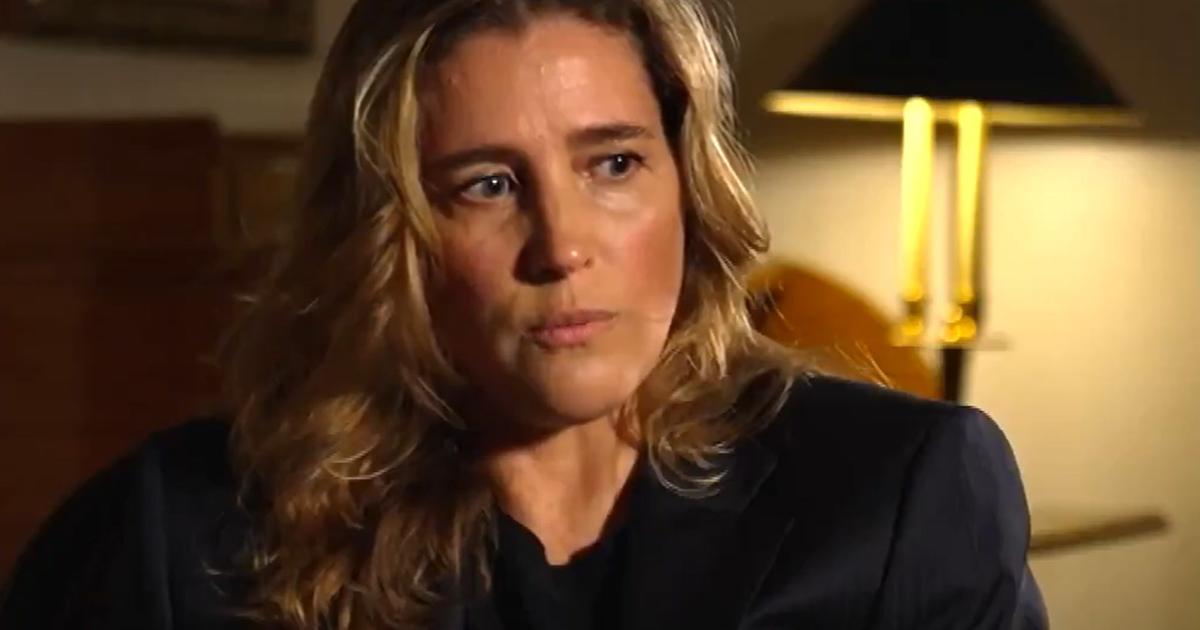Benni, 9, can not live with her mother because she is overwhelmed. But where then? Children's home, foster family, living group - time and again, Benni flies out because she constantly goes wild, strikes herself, attacks others, runs away. The ambulance brings her to psychiatry, from there it goes to the nearest youth welfare facility. And so on.
Director Nora Fingscheidt tells of this drama in the movie "Systemsprenger", which starts this Thursday in German cinemas. Menno Baumann, Professor of Intensive Education, has accompanied the filmmaker for years and provided scientific advice - because he has already met many "system sprinklers". Germany has 4,000 children and adolescents affected, he says.
SPIEGEL ONLINE: "System Sprenger" is not just a film title, but also a term from the youth welfare. What is behind it?
Menno Baumann: The term is difficult to handle at first, because it suggests that there is a bad child that breaks a system. The term does not describe a child, but a process that takes place between many people . It's about children who do not find a permanent place within the system, but are constantly pushed back and forth. Switching between homes, foster care, psychiatrics and - if they are over 14 - the judiciary back and forth and find nowhere a place to live, due to their extreme behavior.
SPIEGEL ONLINE: Like Benni, who threatened her educator with a knife or peed on purpose in the hallway. Why does a child behave like that?
Baumann: There are many different causes. However, in my life, I have never met any of these children without massive biographical burdens: neglect, traumatization, violence, mentally ill or addicted parents. Benni states that as a baby she often had a diaper on her face. These are risk factors that make the environment unpredictable for a child, and then this child will face all other people in the future as well.
SPIEGEL ONLINE: Benni is told that if she did not have any more debris she might even go back to her mother. Can such a child ever change his behavior?
Baumann: No. We all act on the basis of how we have known the world so far. When I learn as a child that even people who tell me that they love me are unpredictable and dangerous, and I can never rely on them to hurt or overwhelm me in the next second, then the world is unpredictable to me , The result is that I can only rely on my emotions and not on what my head tells me.
Port au Prince Pictures
Film scene: Benni is to be returned to a facility
SPIEGEL ONLINE: What happens to such a child?
Baumann: Benni, for example, clearly shows that whenever she suspects that a human being is rejecting her, she takes countermeasures to accelerate this process and to take control of herself: before the other person hurts me, I prefer to run away, I do better break everything. This is painless, as a lot of effort and yet to be rejected. But that's something many people initially do not understand. That irritates, that scares.
SPIEGEL ONLINE: How does a child get out of this?
Baumann: It has to have different experiences over the years, learn that it can rely on adults and that they also abide by the rules of the game.
SPIEGEL ONLINE : Why can not youth welfare help a child like Benni?
Baumann: In most cases, she does that. But a certain group of children shows behaviors that can hardly be tolerated under the given conditions, such as when Benni seriously injured another child. There are also teachers overwhelmed. They feel helplessness and helplessness: this child demands more than I can give. That's the case with Bennis' escort, who develops rescue fantasies, but knows that 24 hours a day I would not be able to stand the child at home, because the neediness due to severe traumatization is so great that a person can not afford it.
SPIEGEL ONLINE: What makes it so difficult?
Baumann: It's not that Benni does terrible things, but that she does that in such intensity and frequency, while she also massively demands, "Take me in the arm!" This tense relationship is making educators feel weak. At the same time, what Benni really wants, namely the unconditional care of her mom, is not due to her mother's life story. What Benni wants as a replacement can not be afforded.
Port au Prince Pictures
Film scene: Benni can not find a place to stay
SPIEGEL ONLINE: Nevertheless, it seems crazy that the child may never arrive anywhere, but always sent on.
Baumann: This is not the impulse of a single educator, but reflexes, which are created in our help system. The first fantasy is that there is a specialist somewhere who can deal with this child. Therefore, I continue to give the child until it is there. The second fantasy: We as an institution can not afford this or we are not responsible for it.
SPIEGEL ONLINE: Who else should be responsible?
Baumann: Educators say, "We are not therapists." And therapists say, "The child must have a place of life, and that's not a clinic." So the child is played back and forth. The third fantasy: It is believed that a certain framework is good for all children. But the kids he does not like go away and end up on the street. And then it says, "We offered everything, but he / she did not want to." We have clearly stated in a study: These three reflexes run through the whole help system. This is not a single educator who shies away from responsibility.
SPIEGEL ONLINE: In the film, Benni, a nine-year-old, is forcibly fixated in psychiatry and sent to Africa for educational purposes. How realistic is that?
Baumann: If you look at the course and the main actress, almost every scene is taken from reality. But not all this happened to one person, but several. Nora Fingscheidt did a lot of research and I told her what I experienced. From this she has developed this wonderful movie character Benni. The professional audience watching the film says, "Yes, I know such a child." Still, it's a fictional story. There are several tricks.
SPIEGEL ONLINE: What really happens differently?
Baumann: There are simplifications in the film. That alone affects the number of protagonists. In Bennis new housing group are one to two educators. That's a lot more in reality. The fact that the employee in the youth welfare office is constant for years and always has time when it is needed is an epic condensation. If you were to show how many people a child actually meets, you would drive the audience nuts.
SPIEGEL ONLINE: Even the pain of the child is difficult to see.
Baumann: The film moves, yes. And where I am speechless as a scientist, the film has incredible pictures. For example, when Benni roars "Mama" into the valley in the forest and no echo comes back, she gets no answer. Or when she is in the revolving door at the airport. We speak in the pedagogy of the revolving door effect, if children are always passed on. You can not show that better. I am very grateful for this film because it brings a new language to the topic and because it asks questions.
Price query time:
18.09.2019, 11:24 clock
No guarantee
DISPLAY
Menno Baumann
Children who go beyond systems: Volume 2: Impulses, access routes and helpful setting conditions for youth welfare and school
Publishing company:
Schneider Hohengehren
Pages:
178
Price:
EUR 18,00
Buy from Amazon Buy from Thalia
Product information is purely editorial and independent. The so-called affiliate links above, we usually receive a commission from the dealer when buying. More information here.
SPIEGEL ONLINE: He also leaves viewers shaken or perplexed.
Baumann: What I think is great: The film knows no good and evil, there is no guilty party. After this film nobody will say that the youth welfare office has failed or the employees did not do their job. And nobody would demand that juvenile criminality be urgently cut down so that a child like Benni can finally be imprisoned. Nobody wants it after the movie. No one can say that one or the other teenager is just angry. This movie does not give simple answers. That's his strength.
SPIEGEL ONLINE: Nevertheless, one wishes for answers. What would have to change?
Baumann: We have a lot of highly motivated and passionate pedagogues in Germany, and we also have good concepts. That does not fail. But: we have no control. Whether someone who is confronted with a child like Benni, knows these concepts and considers them a good idea, is a coincidence in Germany.










/cloudfront-eu-central-1.images.arcpublishing.com/prisa/KMEYMJKESBAZBE4MRBAM4TGHIQ.jpg)


